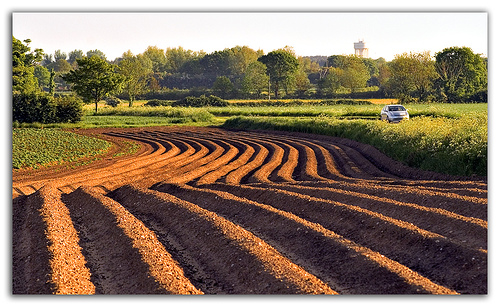
Regenerating Our Soils Is Key for Saving Mankind
There’s no question your health is directly related to the quality of the food you eat, and that the quality of the food in turn is dependent on the health of the soil in which it is grown.
In her book, The Soil Will Save Us, Kristin Ohlson describes the complex relationship between the soil and the food we eat.
Kristin grew up in a small town in Sacramento Valley, California. Her grandparents were farmers, growing field crops and fruit trees, and raising cattle. Her parents were also avid gardeners, maintaining an olive orchard, a large garden, and sheep.
February 8, 2015 | Source: Mercola.com | by Dr. Mercola
There’s no question your health is directly related to the quality of the food you eat, and that the quality of the food in turn is dependent on the health of the soil in which it is grown.
In her book, The Soil Will Save Us, Kristin Ohlson describes the complex relationship between the soil and the food we eat.
Kristin grew up in a small town in Sacramento Valley, California. Her grandparents were farmers, growing field crops and fruit trees, and raising cattle. Her parents were also avid gardeners, maintaining an olive orchard, a large garden, and sheep.
“One of the strongest memories of my childhood was being with my parents, looking at the way things were growing, evaluating the crops, and being out with them in their garden – pulling things up, snipping things off, and eating them,” she says.
Carbon Farming
While she’d developed an interest in sustainable agriculture, the real impetus for the book came from a chef in Cleveland named Parker Bosley, who’s a staunch advocate for locally grown foods.
He had started a restaurant in the ‘80s and wanted to source as many of his ingredients as he could from local sources. In so doing, he helped build the pipeline of local foods going to local consumers frequenting restaurants.
“He was very aware of soil health. He was one of these chefs – I think probably the only chef – who was calling up legislators and saying, “You know that bill that you’re working on? That really could be damaging for soil health,” Kristin says.
“I had written this profile of Parker Bosley for Gourmet magazine and I stayed in touch with him because he was such an interesting thinker about the connection between agriculture and food.
One day, I called him up and I said, ‘What’s interesting going on in agriculture and food? What should I be paying attention to?’
He said, ‘Carbon farming… It’s farmers planning their activities in a very different way… They’re looking at what’s happening with the microbes in the soil and how those microbes are helping to build up carbon in the soil, thus the term carbon farming.’
I immediately thought, ’Well, if they’re building up carbon in the soil through these farming practices, wouldn’t that then decrease carbon in the atmosphere?’ I was really interested in this from a variety of perspectives. That was what prompted me to write the book.”
Most conventional farmers and gardeners use commercial fertilizers such as nitrogen, phosphorus, and potassium (NPK). But very little is done to address the need for carbon.
